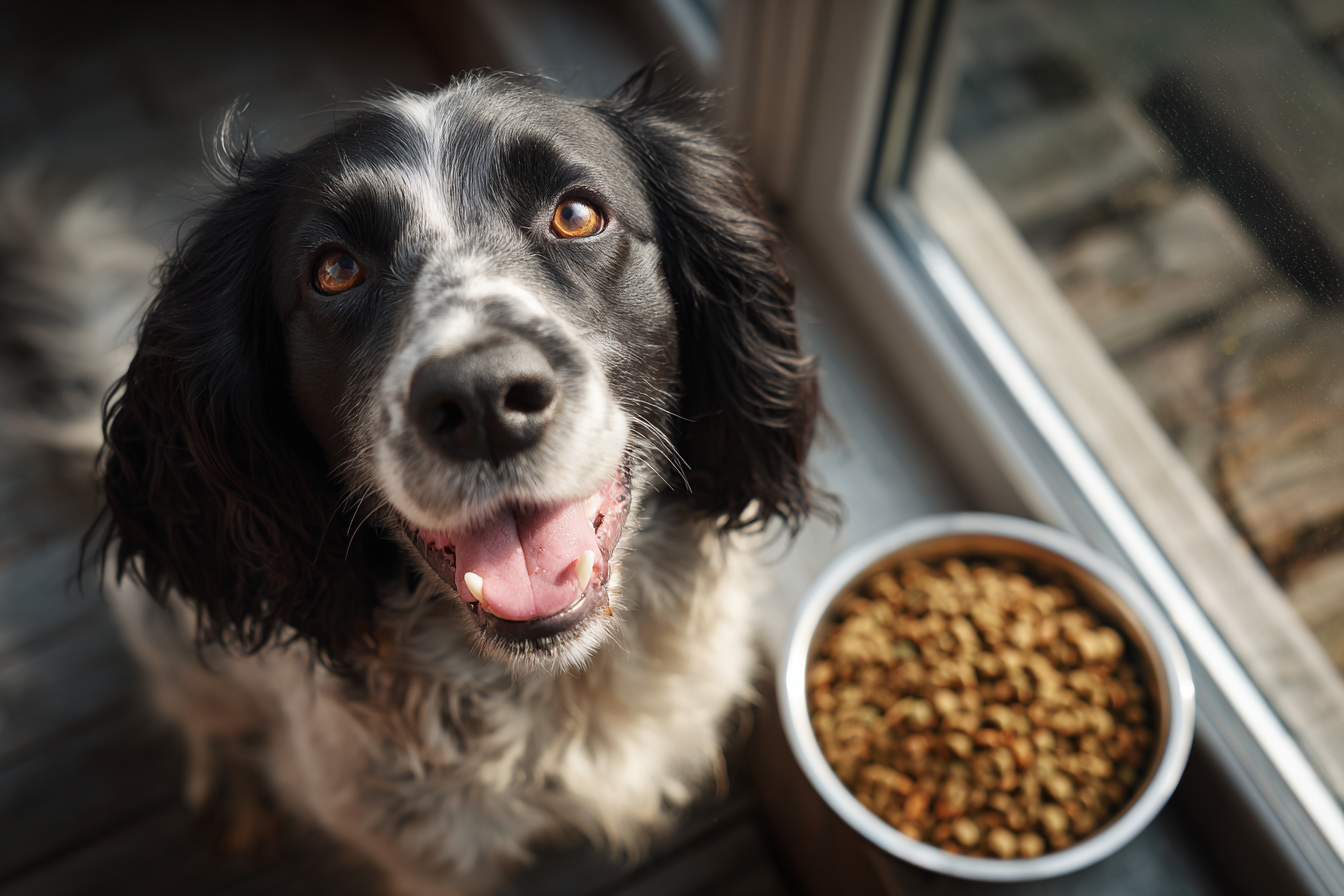Ensuring your English Springer Spaniel receives the right nutrition is fundamental to their health, happiness, and longevity. This lively breed is known for its energy, intelligence, and affectionate nature, all of which can be supported and enhanced through a carefully planned diet. Whether you’re a new owner or looking to optimize your dog’s current eating routine, understanding the nutritional needs and feeding strategies for an English Springer Spaniel can make a significant difference.
Nutritional Needs of English Springer Spaniels
English Springer Spaniels are medium-sized dogs with moderate to high energy levels, so their diet should provide adequate calories and balanced nutrients to sustain their active lifestyle. Proteins are essential for muscle maintenance and repair, and a high-quality protein source such as chicken, lamb, or fish is ideal. These proteins supply amino acids that aid in growth, immune function, and overall vitality.
Carbohydrates provide energy that keeps your dog active throughout the day. However, it’s important to choose complex carbohydrates like brown rice, sweet potatoes, and oats, which offer sustained energy release without causing spikes in blood sugar. Healthy fats, including omega-3 and omega-6 fatty acids, support skin and coat health, joint function, and brain development.
In addition, adequate vitamins and minerals—such as calcium for strong bones, antioxidants for immune support, and fiber for digestive health—are critical components of your Springer’s diet. These nutrients help maintain overall wellness and reduce the risk of chronic conditions.
Choosing High-Quality Dog Food
When selecting commercial dog food for your English Springer Spaniel, opt for brands that prioritize real ingredients and balanced nutrition. Look for products that list a named animal protein as the first ingredient—such as “chicken” or “salmon”—rather than vague terms like “meat meal.” Avoid foods with excessive fillers, artificial preservatives, colors, and by-products.
Dry kibble is convenient and helps with dental health by reducing plaque buildup. Wet or canned food can provide additional moisture and be more palatable, but may have a shorter shelf life after opening. Some owners find a combination approach—mixing wet food with dry kibble—works well to entice pickier eaters while maintaining dental benefits.
Check for nutritional adequacy labels from AAFCO (Association of American Feed Control Officials) to ensure the food meets recognized standards for your dog’s life stage. Puppies, adults, and seniors have differing nutritional requirements, so picking an age-appropriate formula is essential.
Homemade Diet Considerations
Preparing homemade meals for your English Springer Spaniel can be rewarding if done correctly. Home-cooked diets allow you to control ingredient quality and tailor meals to your dog’s preferences or specific health needs. However, it requires careful planning to ensure a balanced intake of protein, fats, carbohydrates, vitamins, and minerals.
Consulting a veterinary nutritionist before switching to homemade feeding is highly recommended. They can help develop recipes that meet your dog’s individual needs and recommend supplements where necessary. Common ingredients in homemade dog meals include lean meats, vegetables like carrots and green beans, and grains such as quinoa or brown rice. Avoid toxic foods like onions, garlic, grapes, and chocolate in any recipe.
Proper portioning and food safety are also critical. Overfeeding can lead to obesity, while improper preparation methods might cause nutrient loss or introduce harmful bacteria.
Feeding Schedules by Age
The feeding routine for your English Springer Spaniel will evolve as they grow:
- Puppies (8 weeks to 6 months): At this stage, puppies need nutrient-dense food to support rapid growth and development. Feed them 3 to 4 small meals daily to maintain consistent energy levels and digestion.
- Adolescents (6 months to 1 year): Transition to 2 to 3 meals per day. Monitor their weight and adjust portions accordingly, as energy needs may fluctuate during growth spurts.
- Adults (1 to 7 years): Most adult Springers do well on two meals per day. Portion size should reflect activity level: an active dog requires more calories, while a more sedentary pet consumes fewer.
- Seniors (7 years and older): Older dogs may benefit from diets lower in calories but rich in joint-supporting supplements like glucosamine and omega fatty acids. Continue with two meals daily, watching for changes in appetite or weight.
Common Dietary Supplements
While a well-balanced diet often provides most of the nutrients your Springer needs, certain supplements can promote specific areas of health. Some popular supplements include:
- Omega-3 Fatty Acids: These support skin and coat health, reduce inflammation, and promote brain function. Fish oil or flaxseed oil are common sources.
- Glucosamine and Chondroitin: Important for joint health, these supplements can help prevent or ease arthritis and mobility issues, which are sometimes seen in active breeds like Springers.
- Probiotics: These beneficial bacteria improve digestion and boost immune function by maintaining a healthy gut flora.
- Multivitamins: Useful when feeding a homemade diet or if your dog has specific nutritional gaps.
Always consult your veterinarian before adding supplements to your dog’s diet to ensure safety and appropriate dosages.
Foods to Avoid
Your English Springer Spaniel’s health can be compromised by certain foods that are toxic or harmful. Avoid these common danger foods:
- Chocolate: Contains theobromine, which is toxic to dogs and can cause vomiting, seizures, or even death.
- Onions and Garlic: These can damage red blood cells and cause anemia.
- Grapes and Raisins: Even small amounts can lead to kidney failure.
- Avocado: Contains persin, which can be harmful in large quantities.
- Alcohol and Caffeine: Both are poisonous to dogs and should be strictly avoided.
- High-fat and salty human foods: Can lead to pancreatitis and other digestive problems.
Always introduce new foods cautiously and watch for any adverse reactions.
Monitoring Weight and Adjusting Diet
Maintaining a healthy weight is vital for your English Springer Spaniel’s quality of life. Obesity increases the risk of diabetes, joint problems, heart disease, and shortens lifespan. Regularly weigh your dog or use a body condition scoring method where you assess the ribs, waistline, and abdominal tuck.
If your dog gains or loses weight involuntarily, consult your veterinarian to rule out medical causes. You may need to adjust calorie intake, switch to a specialized diet, or increase physical activity. Portion control and consistent feeding schedules help prevent overfeeding.
Remember to treat your dog responsibly—use healthy, low-calorie treats, and factor treats into your dog’s daily caloric intake to avoid unintentional weight gain.
Helping Your Springer Shine with Proper Nutrition
A thoughtful approach to feeding your English Springer Spaniel sets the stage for a vibrant, healthy life. Understanding their specific nutritional needs and choosing quality ingredients—whether commercial or homemade—ensures they receive balanced nourishment. Feeding them according to age, supplementing when needed, avoiding harmful foods, and regularly monitoring weight are pillars of excellent care.
With consistent attention and care, your energetic and loving English Springer Spaniel will thrive, bringing joy and companionship for many years to come.







